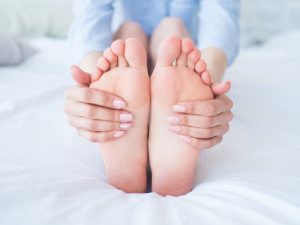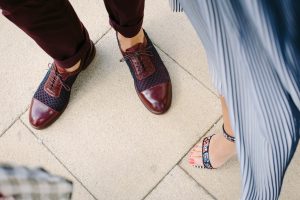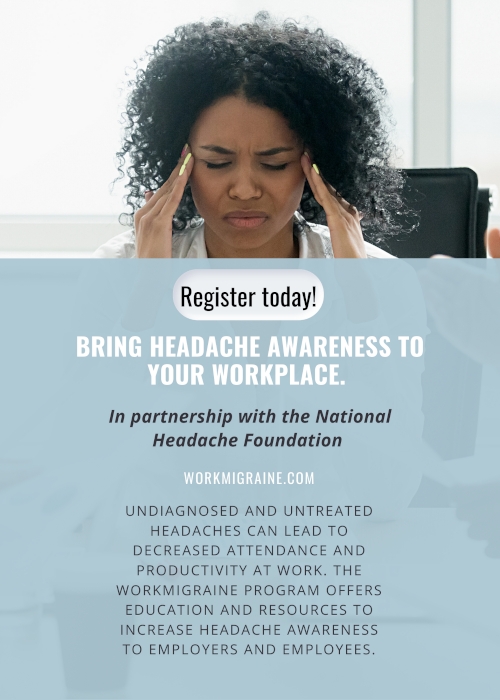Healthy Feet on the Job
Our feet do the grunt work by supporting our entire bodies every day. They carry us from place to place from infancy through adulthood covering upwards of 100,000 miles. Our feet are the very foundation for our bodies but are typically ignored until there’s a problem. Once there’s a problem, it can affect our entire body’s overall health. Since our feet work so hard for us, why don’t we take care of them before any problems begin? Let’s go over some ways we can care for our feet and keep them healthy as they carry us through both our workday and life.
Proper Footwear
Wearing shoes with little to no arch support can wreak havoc on your body. Not only does a good supportive shoe provide a steady foundation and balance, but it also contributes to your overall activity level. Your arch comes under the most strain as you stand and walk. Without support, you may experience back pain, foot pain, and even headaches or stomachaches.
It can be challenging to find proper footwear when you work in an environment that requires more formal attire. Purchase a good shoe insert to make even the least supportive shoes more foot health-friendly.
If you can wear a shoe with laces at work, choose one with multiple eyelets. The more a shoe has, the more it can conform to the shape of your foot, providing the best support.
Moisturize
There are plenty of lotions and creams out there that are touted as the best for your feet. Any of them will do. The real trick to moisturizing your feet is to make sure you are first exfoliating. Get rid of any dead skin cells so that your dry feet will be ready to receive new moisture.

You can use a simple washcloth after soaking your feet, or a loofah or pumice stone for those extra dry, callused areas. Adding some Epsom salt to your bath can help soften the skin on your feet, making it easier to remove any dead skin.
Follow your exfoliation with a lotion or petroleum jelly to seal in moisture. Most of all, be consistent. Your feet crave moisture daily. Make sure your body is also hydrated from the inside by drinking plenty of water and eating a diet rich in Omega fatty acids.
Good Foot Hygiene
It’s easy to ignore our feet when it comes to hygiene. They’re typically covered inside a shoe, so who’s really going to see them? They’re also a long way down there! May we suggest you take the small extra effort to pay special attention to your feet? Here are some issues that may arise from poor hygiene and how you can prevent and address them:
- Ingrown toenails – ingrown toenails can be painful and uncomfortable. Be sure to keep your toenails trimmed, but not too short! Trim your toenails straight across rather than rounding the edges. Maybe most important, choose shoes that fit your foot properly! Shoes that are too tight can contribute to an ingrown toenail. Your toes should be able to wiggle freely inside.
- Smelly feet/shoes – This is a common problem for shoes that you may wear daily. Feet sweat and when they are inside a sock and shoe for over eight hours a day, that doesn’t leave much room for air circulation. Sometimes you are left with a shoe that stinks no matter what you do! In order to prevent those perpetually smelly feet, try to alternate between at least two different pairs of shoes for work. This allows one pair to completely dry out for over 24 hours. It won’t stop your feet from sweating, but it should allow the smell to decrease. Also, wear cotton socks to wick sweat away. Socks made of other materials may trap moisture in and worsen the issue. Choosing leather shoes over plastic or other synthetic material can also promote more air circulation to your feet.

- Infections/Itchy Feet – there are many different causes for itchy feet and not all of them relate to hygiene. However, one that does is a fungal infection we all know as “athletes foot”. Athlete’s foot can develop if your feet sweat and you’re wearing shoes that are too tight. Make sure your shoes fit properly and that you change out of sweaty socks as soon as possible. Even washing your feet with antibacterial soap can be helpful, paying close attention to in between your toes.
- Dry, cracked heels – Feet tend to be exceptionally dry. If you’re someone who spends a lot of time on their feet, your dry heels may even crack. These cracks leave your feet open and susceptible to infection. Use a thick moisturizer on your feet each night before bed and especially after washing to lock in moisture. Resist the urge to be barefoot as much as possible since it can lead to drier feet and the potential for infection.
April is Foot Health Awareness Month! Visit our National Wellness Observance Calendar for more resources on Foot Health as well as a FREE Calendar download. See our Wellness Blog on Workplace Wellness for tips on how to bring this education into your workplace.


